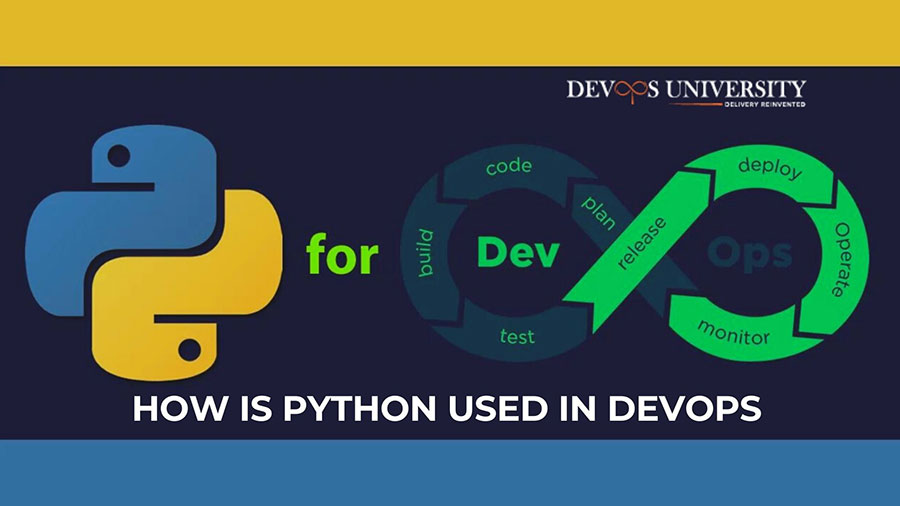
Traditional methods of operation and development have faced numerous challenges, such as an increase in the number of updates and binds from the development team. As a result, the operations and development teams’ work is disconnected, and the approach makes their work tedious to perform.
Because functional and infrastructure changes are challenging to manage, they occur independently, resulting in numerous downtimes, unnecessary obstacles, and bugs and errors due to human intervention. The application development team may run its functions on a compatible platform. The testing team may test on their platforms. Finally, the platforms are different for production deployment, which is a nightmare for the application development team. The operations team, which manages its infrastructure, has a different perspective and faces its own set of challenges in maintaining an unsuitable platform for application hosting.
DevOps is a term that guides the combination of software development and operations. This method enables a single team to manage the entire application lifecycle—from development to testing, deployment, and procedures. DevOps assists in bridging the gap between software developers, quality assurance engineers (QA), and system administrators.
Python is a popular programming language among DevOps teams. Python’s flexibility and accessibility make it an excellent choice for this job, allowing the entire team to create web applications, data visualizations, and custom utilities to improve their workflow. In addition, python’s programming-friendly and extensive libraries make automation a breeze. As a result, Python is used in DevOps and has become the de facto language for DevOps automation.
Effective ways to use Python in DevOps
Python allows you to do anything in DevOps. The main areas of focus are Python-based automation of DevOps life cycle management. For example, Python can be used to automate the CI/CD pipeline. The following are the best ways to use Python for DevOps-
- Automate the DevOps life cycle management.
- Automate the infrastructure deployment and configuration management.
- Utilize Python for the CI/CD pipeline automation.
- Python as a script can be utilized for automating the small day-to-day checking and observing tasks.
- Organize and control the infrastructures using Python programming tools.
- Ensure that DevOps applications are platform-independent by innovative and straightforward programming using Python.
- Automate the operational duties of the sysadmin, which are repetitive and periodic.
- Use Python to alter, configure and automate the DevOps tool.
Python’s Advantages in DevOps
Python and DevOps (combo) can be used in tandem to create next-generation solutions. As a result, you can make an application, work with diverse cross-functional teams, work across multiple platforms, and provide an excellent user experience.
Efficiency
When it comes to efficiency, this combination goes hand in
hand. The code is written using best practices, processes,
and patterns, resulting in remarkable efficiency. Efficiency
is guaranteed when it comes to Python as a coding language
and DevOps as a practice. To improve quality and customer
satisfaction, efficiency must be improved over time.
Efficiency is not a result but rather the result of
consistent practice.
Adapt to Changes
DevOps fosters an organizational attitude of rapid
adaptation to change. The key things that organizations must
be readied to embrace and adapt to are changes in
everything, such as customer demands, market changes,
business changes, and technological changes. Therefore,
change management and execution should be the motto of every
company in the world. Python in the DevOps culture aids in
the creation of scalable, adaptable, and flexible
applications through efficient and effective processes.
Excellent pairing
DevOps and Python are not at the end of the road but have
many more years to build applications, automate tasks,
increase productivity, efficiency, and quality, and meet
ever-changing customer expectations.
Syntax and libraries
Python’s great syntax and vast libraries help make
scripting, automation, and programming simple and accessible
in the DevOps field. It assists organizations in embracing
change, automating deployment and development, and dealing
with complex challenges in a secure, streamlined, and
simplified manner.
Why Python is necessary for DevOps?
Python automation scripts are platform-independent and support multi-tool integration, making them appear to be a better option. The following are some of the main bases why Python is essential for DevOps-
- Python is a fantastic scripting language.
- Python libraries are widely available, allowing you to write scripts that can communicate with system internals, manipulate files and strings, manage networks, etc.
- Once you’ve learned Python, you’ll be able to write well-structured automation scripts.
- Furthermore, Python is now included with every Linux system.
- Many DevOps teams use Python to create custom utilities, web apps for custom data visualization, and other applications. The leading cause is that it is simple to learn and that you can develop utilities in days rather than months.
- Furthermore, tools like ansible are entirely written in Python. Therefore, custom Ansible modules can be created for your automation tasks. Moreover, it is not limited to Ansible; many Python-based tools allow you to write custom scripts to improve your interaction with them.
- Most importantly, you will be asked to solve programming or scripting challenges during DevOps interviews. Python is the best option for passing those interview rounds.
How is Python used in DevOps?
Automation is the ultimate objective of DevOps, so Python implementation in DevOps processes is critical. Python makes writing simple scripts that can automate essential DevOps processes. Among these tasks are the following:
Monitoring
Python allows you to create scripts that automate simple
day-to-day monitoring tasks and even send notifications and
alerts if there is a problem with the system. Use Python
libraries such as psutils, a cross-platform lib for process
and system monitoring, and one of the many network traffic
monitoring libraries developed by the Python community
example Scapy. You will have a monitoring system that you
can code from scratch and adapt to your needs.
Pipelines for CI/CD and Configuration
Management
Python is also used to automate continuous integration and
deployment. For example, python makes it simple to write
simple scripts that automate the CI/CD pipeline, making it
easier and less error-prone. Don’t forget that the
most valuable and well-known DevOps tools are written in
Python; examples include Ansible and SaltStack.
Deployment
Fabric and Cuisine are two popular Python deployment modules
used by DevOps. Python can also help automate application
deployment, configuration, and management from development
to testing and production environments.
Cloud Automation
Python can also create infrastructure-specific scripts that
automate DevOps application environments’ creation,
configuration, and management with cloud platform
interfaces.
Conclusion
Python is a simple language with an extensive and customizable library and one of the most active user communities. DevOps as a process necessitates some level of coding to ensure that its principles are implemented correctly. Python is one of the preliminary technologies used by DevOps professionals and teams. Python offers flexibility and accessibility in this process, making it an excellent choice for DevOps tasks. Improved, simple, but sophisticated custom utilities enable DevOps professionals to build, test, deploy, visualize, and monitor the DevOps lifecycle.

 Workshop
on Certified DevOps Foundation
Workshop
on Certified DevOps Foundation Workshop
on Certified DevOps Professional
Workshop
on Certified DevOps Professional Get
DevOps Certified
Get
DevOps Certified